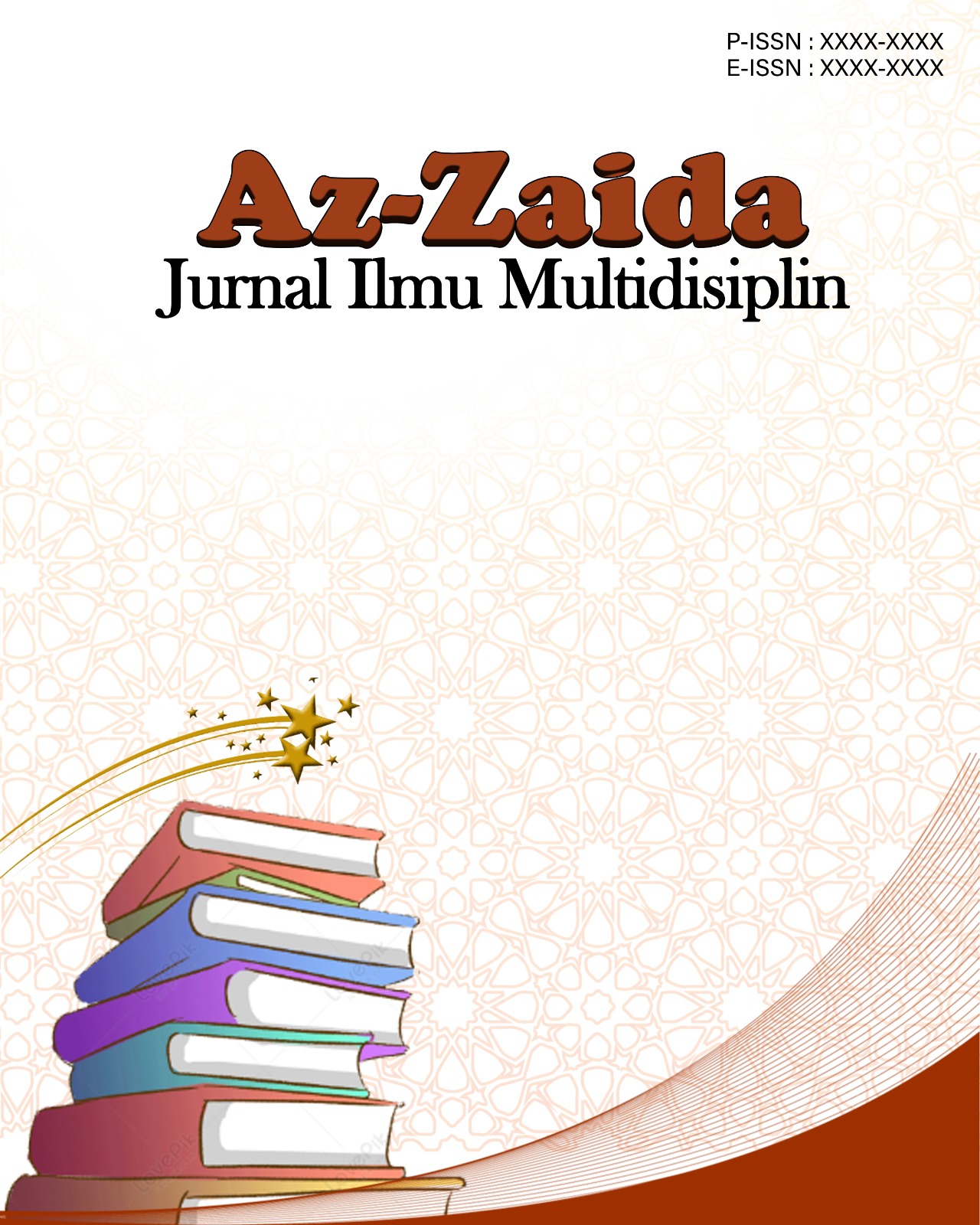Implementasi Keterampilan Mendengarkan sebagai Landasan Pembelajaran Bahasa Inggris di SDII Luqman Al Hakim 02 Batam
Keywords:
Listening Skills, English Language Learning, Elementary SchoolAbstract
This study aims to describe the implementation of listening skills as the foundation of English language learning at SDII Luqman Al Hakim 02 Batam. The research focuses on teachers’ strategies in integrating listening activities, the media used, and students’ responses toward the learning process. This research employed a qualitative descriptive approach. Data were collected through classroom observations, interviews with teachers and students, and documentation of learning materials. The data analysis was conducted using Miles and Huberman’s model, which includes data reduction, data display, and conclusion drawing. The findings reveal that listening skills serve as the basis for developing students’ language competence, particularly in speaking and vocabulary building. Teachers applied various strategies, such as songs, interactive games, and audio-visual media, to enhance students’ comprehension. Students showed positive responses, indicated by their increased participation and enthusiasm in classroom activities. This research highlights that listening is a crucial foundation in English language learning at the elementary school level and needs to be developed through the support of diverse media and teaching methods.
References
Aan Komariah, & Satori, D. (2023). Metodologi Penelitian Kualitatif. Bandung: Alfabeta.
Abdolrezapour, P., & Ghanbari, N. (2021). Enhancing learning potential score in EFL listening comprehension and self-regulation through self-regulated dynamic assessment procedures. Language Testing in Asia, 11(1), 10.
Arikunto, S. (2022). Arikunto, Suharsimi, Prosedur Penelitian Suatu Pendekatan Praktek, Rineka Cipta, Jakarta. Jurnal EMBA, 1(3).
Avci, D. (2023). EFL Teachers’ Beliefs and Practices in Teaching Listening in a Primary School. Journal of Second Language Acquisition and Teaching, 29.
Baharuddin, L. (2023). Peningkatan Kemampuan Listening melalui Penggunaan Podcast Berbahasa Inggris pada Siswa Kelas XI MAN 1 Ternate (Suatu Penelitian Tindakan Kelas). JUANGA: Jurnal Agama Dan Ilmu Pengetahuan, 75–86.
Creswell, J. W. (2022). Research Design : Qualitative, Quantitative, And Mixed Methods Approaches (4th ed.). London: SAGE Publications Ltd.
Fitri, M. (2023). The Effectiveness of English Kids Song in Increasing Vocabulary of The Second Grade Students’ at SD Inpres 3 Tatura Palu. Universitas Islam Negeri Datokarama Palu.
Hogan, T. P., Adlof, S. M., & Alonzo, C. N. (2021). On the importance of listening comprehension. International Journal of Speech-Language Pathology, 16(3), 199–207. https://doi.org/10.3109/17549507.2014.904441
Johannes, D. A., Ee, J. S. S., Jendia, J. A., Pasang, M. S. A., & Hashim, H. (2023). Learning Strategies Used by ESL Pupils in A Sub-Urban Primary School to Develop Listening Skills. Journal of Academic Research in Business and Social Sciences, 13(6), 1732–1748.
Meden, E., Radovan, M., & Štefanc, D. (2024). Podcasts and informal learning: Exploring knowledge acquisition and retention. Education Sciences, 14(10), 1129.
Moleong, J. (2022). Lexy, Metodologi Penelitian Kualitatif Cetakan keduapuluh dua. Bandung: PT Remaja Rosdakarya.
Moleong, L. J. (2021). Metodologi penelitian kualitatif (edisi revisi).
Mukminatun, S. (n.d.). Pemanfaatan Media Internet dalam Peningkatan Pembelajaran Listening. Online),(Http://Eprints. Uny. Ac. Id/3481/1/Pemanfaatan_Media_Internet_dalam. Pdf, Diakses 24 Agustus 2021).
Nurhayati. (2023). DETERMINASI KINERJA GURU : PENGEMBANGAN KURIKULUM, KEPEMIMPINAN KEPALA SEKOLAH. BERNAS: Jurnal Pengabdian Kepada Masyarakat, 4(1), 165–170.
Nurhayati, N, Latif, M., & Anwar, K. (2024). The Influence of Organizational Culture, Career Expectations, and Leadership Beliefs On Achievement Motivation In Integrated Islamic Primary Schools Riau Islands …. Dinasti International Journal of …, 5(5), 1150–1168. Retrieved from https://dinastipub.org/DIJEMSS/article/view/2700%0Ahttps://dinastipub.org/DIJEMSS/article/download/2700/1803
Nurhayati, Nurhayati. (2024). Pengaruh Komunikasi Interpersonal, Budaya Organisasi dan Komitmen Organisasi Guru di Sekolah Dasar Islam terpadu Kepulauan riau. Jurnal Literasiologi, 11(1).
Qasserras, L. (2025). Systematic Review of Effective Teaching Listening Practices in Esl/Efl Settings. European Journal of English Language Teaching, 9(6). https://doi.org/10.46827/ejel.v9i6.5768
Rochmawati, L., Fatmawati, F., Sukma, M. M., & Astutik, R. (2019). Pengaruh Pembelajaran Listening Melalui Youtube Untuk Meningkatkan Kemampuan Listening Taruna. Approach: Jurnal Teknologi Penerbangan, 3(1), 43–53.
Sabrina, N. S., & Nurazizah, S. (2024). Penggunaan Youtube sebagai Sarana untuk Meningkatkan Pemahaman Bahasa Inggris. Karimah Tauhid, 3(1), 803–828.
Sarianti, S., Maulina, M., & Nasrullah, R. (2025). EFL Tertiary Lecturer’s Perception of Integrating YouTube in Teaching Speaking. English Education, 18(01), 19–40.
Smith, A. N. (2020). The Importance of Attitude in Foreign Language Learning. The Modern Language Journal, 55(2), 82–88. https://doi.org/10.1111/j.1540-4781.1971.tb00916.x
Soulisa, I., Sabriadi, R., Nukuhaly, N. A., Budiharsono, A., & Juniati, S. (2025). Metodologi Pengajaran Bahasa. Nas Media Pustaka.
Spies, T. G. (2023). The forgotten language skill: Finding a prominent place for listening in meaningful programming for multilingual learners with learning disabilities. Frontiers in Education, 8, 1214535. Frontiers Media SA.
Sugiyono. (2022). Sugiyono, Metode Penelitian Kuantitatif Kualitatif dan R&D. CV. Alfabeta, Bandung, 25.
Whisnubrata, A. A. A. A. (2024). Penggunaan Musik Dan Lagu Dalam Pembelajaran Bahasa Inggris Untuk Meningkatkan Pemahaman Kosakata. J-ABDI: Jurnal Pengabdian Kepada Masyarakat, 3(12), 2329–2336.
Xu, J., Fan, J., & Luo, K. (2021). Exploring L2 listening instruction, self-efficacy, and strategy use: A mediation analysis. Frontiers in Psychology, 12, 758757.
Zhao, J., & Lee, C. I. (2022). Teaching EFLLs Listening Subskills With a Speaking-Listening Model in a Computer-Mediated Communication Setting. Frontiers in Psychology, 13(July), 1–15. https://doi.org/10.3389/fpsyg.2022.836013






